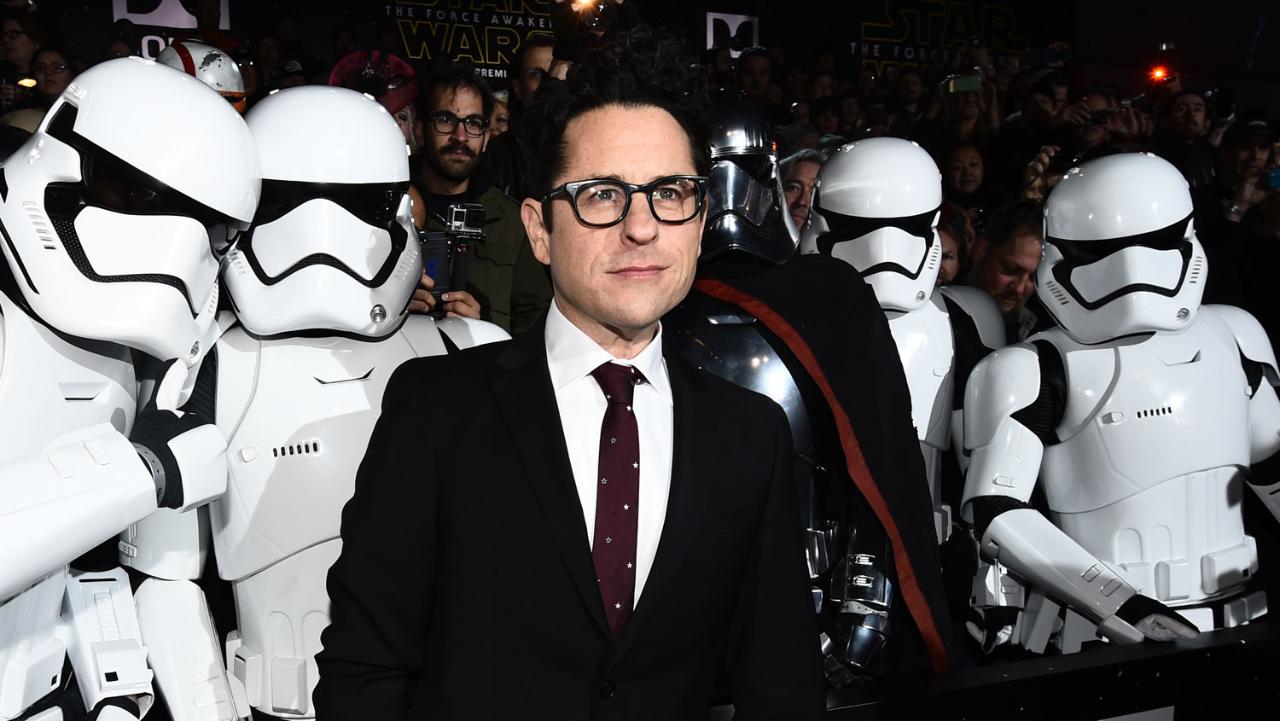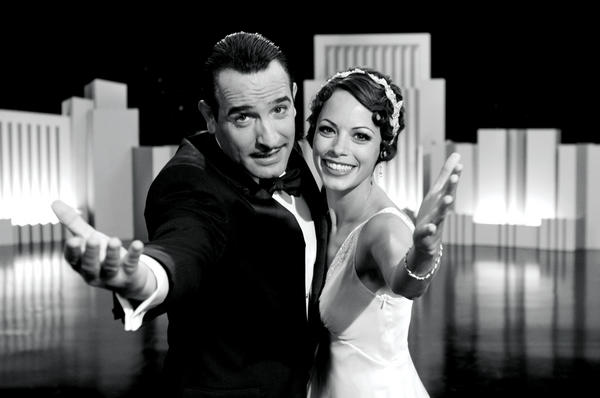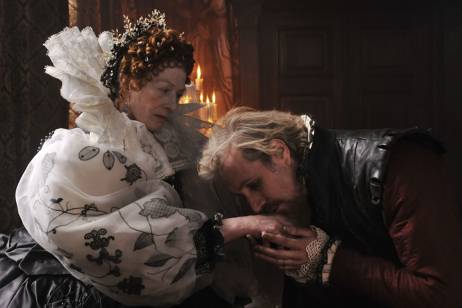“Exciting, spectacular and seductively innocent”; “A humongous piece of cinema … with intergalactic, warp-speed, panoramic blockbuster action”; “Bold but beautiful, nostalgic but new”. The critical reaction to Star Wars: The Force Awakens (and that last quote was The National’s) has been overwhelmingly positive. But there was one thing that nearly all these enthusiastic reviews had in common: they called it “J J Abrams’s Star Wars”. This American filmmaker has the cinematic world at his feet, and what a ride it has been.
Abrams was the perfect choice for what The Guardian called a “shrewdly affectionate next-gen reboot” of Star Wars. His involvement in the similarly clever refashioning of the Star Trek franchise meant that he alone could deal with the expectations of both Disney – which spent a staggering US$4.05billion (Dh14.8bn) buying Lucasfilm, the company behind the Star Wars movies – and a fan base eager to reconnect with the magic of the original three films.
There is an argument that Abrams was starting from a pretty low base – the three prequel Star Wars films that George Lucas made from 1999 to 2005 were so risibly bad, any film that displayed the merest comprehension of what this epic space opera meant to people would have gained plaudits. But Abrams’s previous films, and television series, have consistently displayed an innate understanding of how epic drama, mystery, action and, most importantly, coherent characters fit together to produce seductive storytelling. As someone who grew up loving the original Star Wars films himself, he had an instinctive connection with them.
“Forget how incredible it looked, forget the technology, forget the humour, the heart, the romance, the adventure – all the amazing moments that made us love it,” he said of the original to Wired recently. “Think about what [Lucas] was able to stir up … the idea that he was able to create a world that clearly went so far beyond the boundaries of what we were seeing and hearing.”
Of course, most directors could say that they were a fan of the first three films, and that this new film was as much about honouring those movies as it was about moving the story on. But speak to any of the actors on set – as The National did earlier this month – and the impression was of a director who was genuinely consumed by the potential of making Star Wars not only as good as it could possibly be, but also the starting point for a new trilogy that could stand proudly alongside the originals. New lead John Boyega talked of Abrams taking him aside and excitedly telling him secret plot developments. Gwendoline Christie revelled in the chance to use a full range of actorly techniques honed on the stage – unusual for a baddie in a blockbuster.
It’s telling, too, that a little trick from Abrams’s 2009 Star Trek film – the return of a much-loved actor from the original in a supporting role – has been replicated with appearances by Harrison Ford, Mark Hamill and Carrie Fisher in The Force Awakens. But there’s a subtle difference. Abrams was never a huge Star Trek fan – in fact he got himself into a spot of bother when he told the LA Times that he wasn’t an “insane fanatic” and was making a film for typical moviegoers rather than for fans who wanted him to be “true to every arcane detail”.
Abrams, then, has concentrated on characters and how they fit into his narrative – a principle this 49-year-old has stuck to throughout a career, in which he’s directed just five films. Compare that with his peer Christopher Nolan, who has made double the amount of movies and slowly built up to his first big franchise with Batman Begins. Abrams’s debut was the most expensive film ever made by a first-time director – and it was none other than Mission Impossible III. He was starting big – because he had the reputation to deal with it.
Abrams landed this $150million (Dh550m) gig largely because Tom Cruise had been enjoying the Abrams-created series Alias on DVD. Broadcast on ABC in America for five seasons from 2001, executive producer and co-creator Abrams directed just three of the 105 episodes, which starred Jennifer Garner as a CIA double agent also working for a criminal and espionage organisation. But, much like Nolan, there was an obvious commitment from Abrams to the intricacies of storytelling. Part of his genius, said Garner at the time, was that he shoved “a tonne of story into every episode”, and though it was a spy drama, for her, ultimately, the show was about family. “About this woman and her father and trying to figure out what is always a complicated relationship in the context of life and death at work.”
It’s fascinating to note that the married dad-of-three told Wired this month that Star Wars, for all its exciting spacecraft, glowing lightsabres and explosions, was at its beating heart simply “about a young man and a young woman”, and had to be romantic, fun, surprising, heartbreaking and funny.
So even though Abrams’s projects may be shot through with madness or monsters, there has to be a human story for him to hold on to. In his self-styled “American Godzilla” movie Cloverfield, the first scenes are simply young people having fun. And for all the increasingly ridiculous plot lines of his hit series Lost, it certainly had a similar sense of humanity. Take the first, iconic episode from 2004 – which Abrams co-wrote and directed – with characters we would grow to know and love strewn around the wreckage of Oceanic Flight 815. There was spectacle, suspense, mystery and a strange creature. But there were tales of addiction, budding romances and a very real connection with some of our greatest fears.
Abrams would win Emmys for Outstanding Directing, Outstanding Drama Series and Outstanding Writing that year. Essentially, these were awards for three different skills – producing, writing and directing, and even in Star Wars, with its many interested parties, that creative control is important to Abrams. This is a man who revels in plot twists and narrative intrigue: directing a franchise in and of itself is not enough.
“I didn’t want to enter into making a movie where we didn’t really own our story,” he says in that Wired interview, and it’s not exaggerating to suggest there has even been a Lost-like sense of mystery to the new Star Wars trailers alone. It’s been genuinely difficult to have The Force Awakens plot-spoiled – which, of course, makes the whole moviegoing experience, in which Abrams has always revelled, all the richer.
Abrams’s love of cinema began as a child whose parents were California-based producers. His grandfather gave Abrams a Super-8 camera, and he would film short movies on it – which he has said usually ended in his sister dying horribly. One of them caught Steven Spielberg’s eye at a young filmmakers festival and, amazingly, Spielberg gave Abrams the job of editing his own teenage Super-8 material.
Fast forward to 2011, and the planets aligned spectacularly. Abrams and Spielberg collaborated on a film, Super 8, about kids making their own movie who encounter a strange alien being. Indeed, the way Abrams visually (and some might say emotionally) referenced the suburban settings of ET or Close Encounters of the Third Kind meant that he was widely hailed as a successor to Spielberg’s own throne.
It was interesting that Spielberg himself never saw that as a threat. “Even though J J is seasoned from television and certainly from two humongous productions, to me, and I say this selfishly, this is J J’s first real film,” Spielberg said of Super 8. “A film that came out of his heart, that he wrote and directed and it isn’t part of a franchise that was once someone else’s television series and brainchild. This is pure J J.”
He’s also said recently that Abrams has been terrified about the reaction to Star Wars, which had its UAE premiere at Emirates Palace on December 16. He needn’t have been. As the movie finally becomes public property, Abrams can reflect on a job well done – and move on in his own inimitable way. Episode VIII will be helmed by Looper director Rian Johnson, but Abrams will be an executive producer. He has a similar role on the next Star Trek film, slated for 2016, some of which was filmed in the UAE, just as scenes from The Force Awakens were shot in Abu Dhabi. It all points to a Spielbergian figure endlessly fascinated and enthused by high-quality mainstream moviemaking, rather than simply a chaser of blockbusting dollars.
To confirm his place in the cinematic pantheon – to have a Spielberg-like influence and legacy – Abrams probably has to find his own timeless movie rather than be the go-to man for admittedly effective reboots of franchises. Whether that’s even possible in this era of sequels and comic adaptations is a moot point. But J J Abrams certainly has the Force of will to try.


